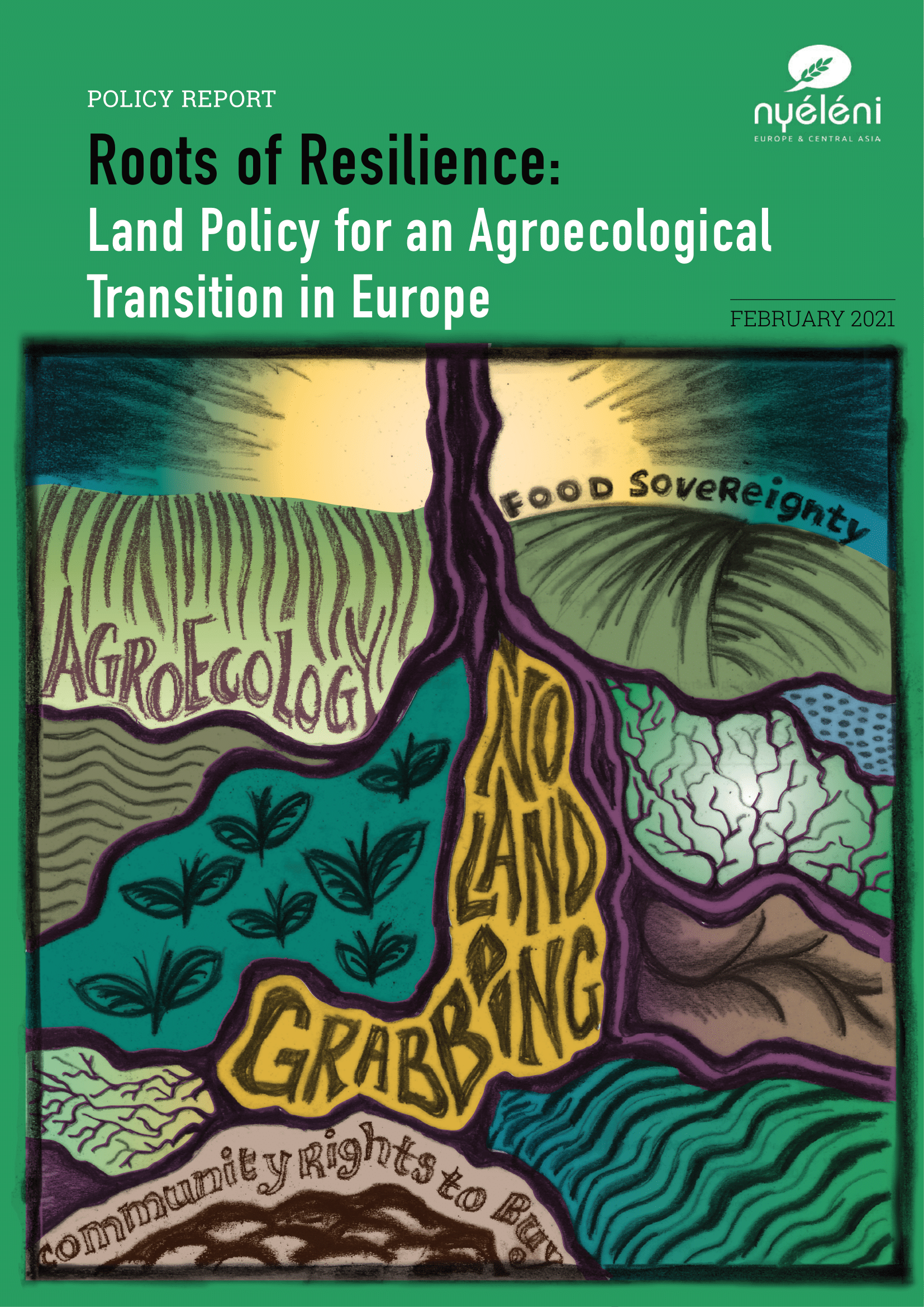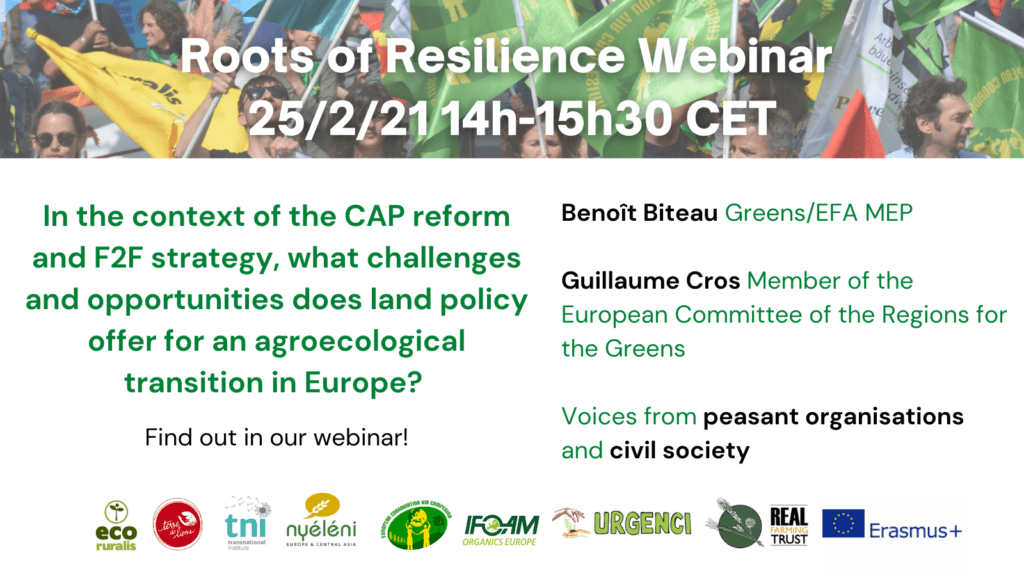Land policy is key to agroecological transition in F2F Strategy and CAP reform

Press Release
Brussels, 24 Feb 2021
Press release PDF | Full report |Executive Summary
In a report launched February 2021, the Nyéléni Europe and Central Asia Food Sovereignty Network and Innovative Land Strategies Partnership outline how land policies can support or hinder Europe’s transition to agroecology, a central component in the move towards more sustainable and equitable food systems and societies.
Although the objectives and aims outlined in the Green Deal, Farm to Fork Strategy and the CAP are encouragingly ambitious, land politics – who controls what land, how is it used, for how long, for which purposes and to whose benefit – will be key in determining the overall success of these initiatives.
As outlined in the report, entitled Roots of Resilience: Land Policy for an Agroecological Transition in Europe, policymakers must integrate long-standing land policy demands from peasant and civil society organisations,[1] as well as recommendations on land from the European Parliament[2] to ensure access to land for small-scale and peasant farmers, guarantee transparency around land transactions and tackle systemic causes of land grabbing and land concentration.
Current CAP basic payments linked to farm size are a huge driver of land concentration and encourage wealthy farmers to adopt a winner-takes-all strategy which leads to dramatic excess especially in the new member states in Central and Eastern Europe. Within the CAP reform, these funds must be redirected to prioritise small and medium-sized farms, as well as young farmers and new entrants, through capping and redistributive payments. The common organisation of markets must also be strengthened so that farmers are less vulnerable to market and price fluctuations and able to earn a fair living.
A model of food sovereignty, agroecological farming and fair land stewardship must be embedded within the European Green Deal and Farm to Fork strategy. This includes moving away from the negotiation of Free Trade Agreements which are damaging to the planet and to sustainable food producers around the world. It also requires the implementation of European-level tools and legislation, such as a European Land Observatory, an EU Land Directive and a high-level task force or permanent civil dialogue initiative to assess the impact of land related policies and to inform future policymaking. This in turn will set the tone and encourage Member States to develop national and regional land policy that facilitate democratic and transparent access to land for agroecology.
You can read the full report here and the executive summary here.
In order to further develop the debate on land in this context, Nyeleni ECA and the Innovative Land Strategies partnership will hold a webinar discussion with policy makers and peasant and civil society organisations on the 25 February 2020 at 2pm CET. More info and registration here.

Contacts
Attila Szocs – ECVC and EcoRuralis Coordinating Committee – +40 771 405 819 – EN, RO
Morgan Ody – ECVC Coordinating Committee – +33 626977643 – FR, EN
Press release available also in Italian
[1] https://www.accesstoland.eu/IMG/pdf/executive_summary_rootsofresilience_online.pdf [2]European Parliament, (2016/2141(INI)) report on the state of play of farmland concentration in the EU: how to facilitate the access to land for farmers.
This post is also available in Français.
